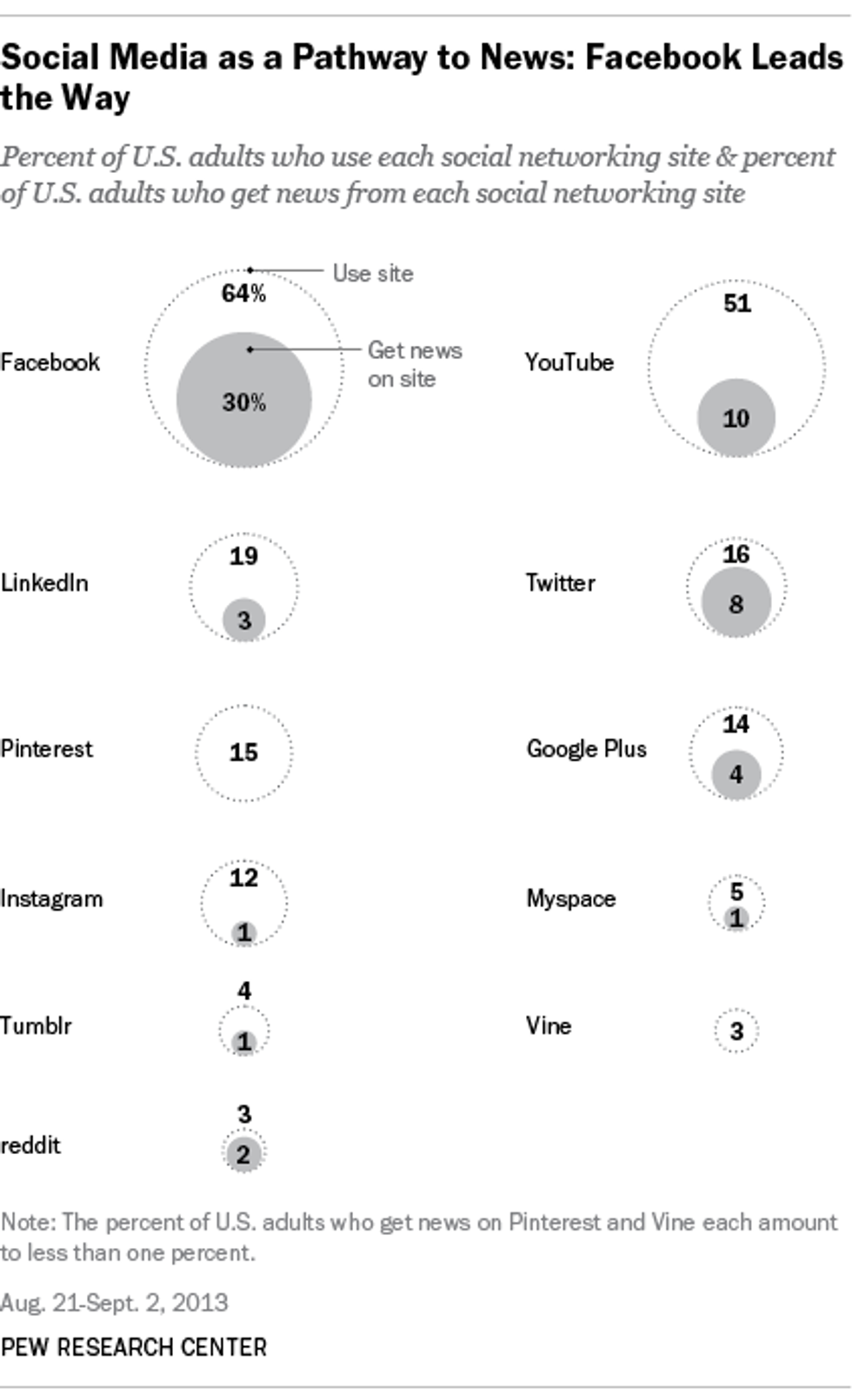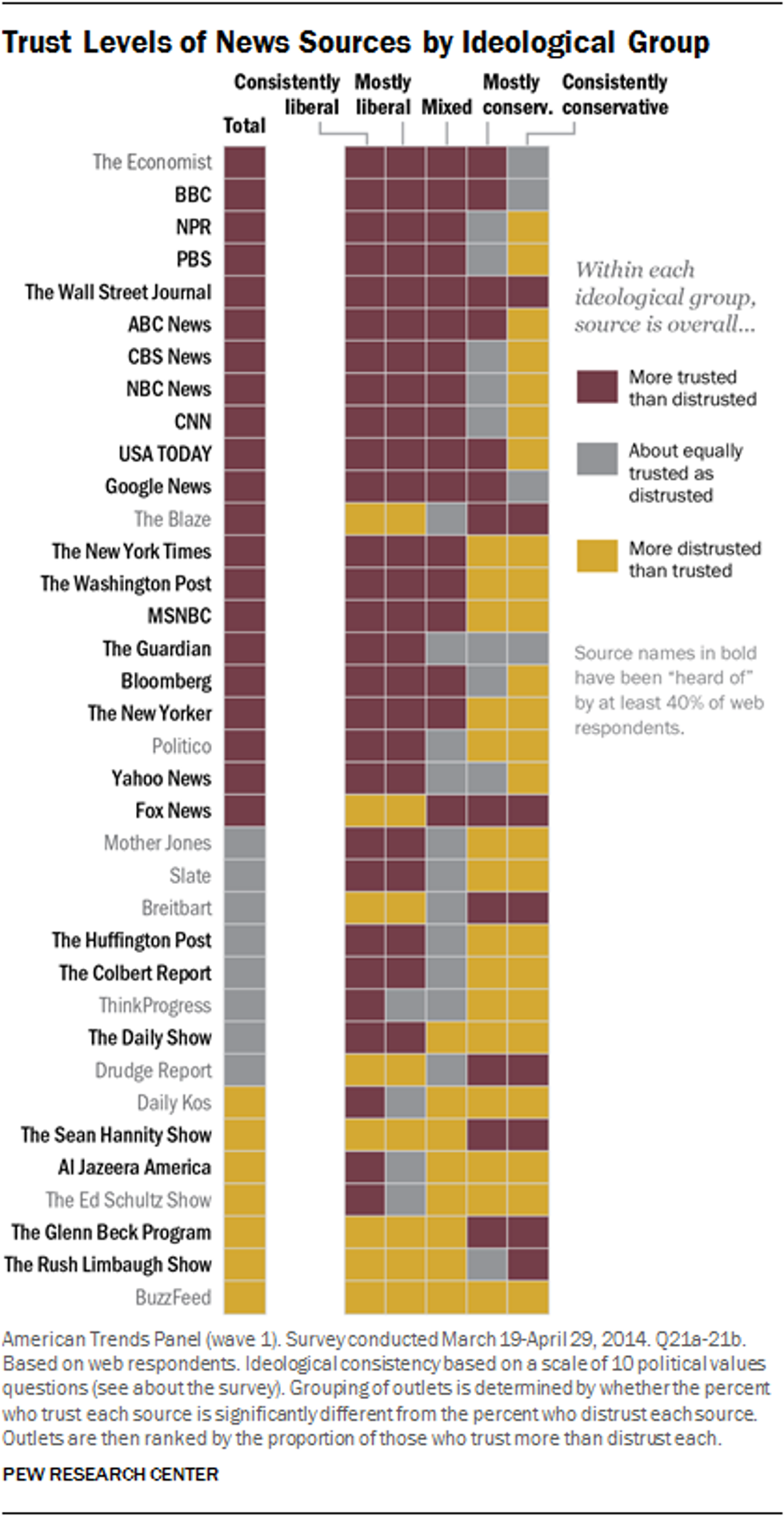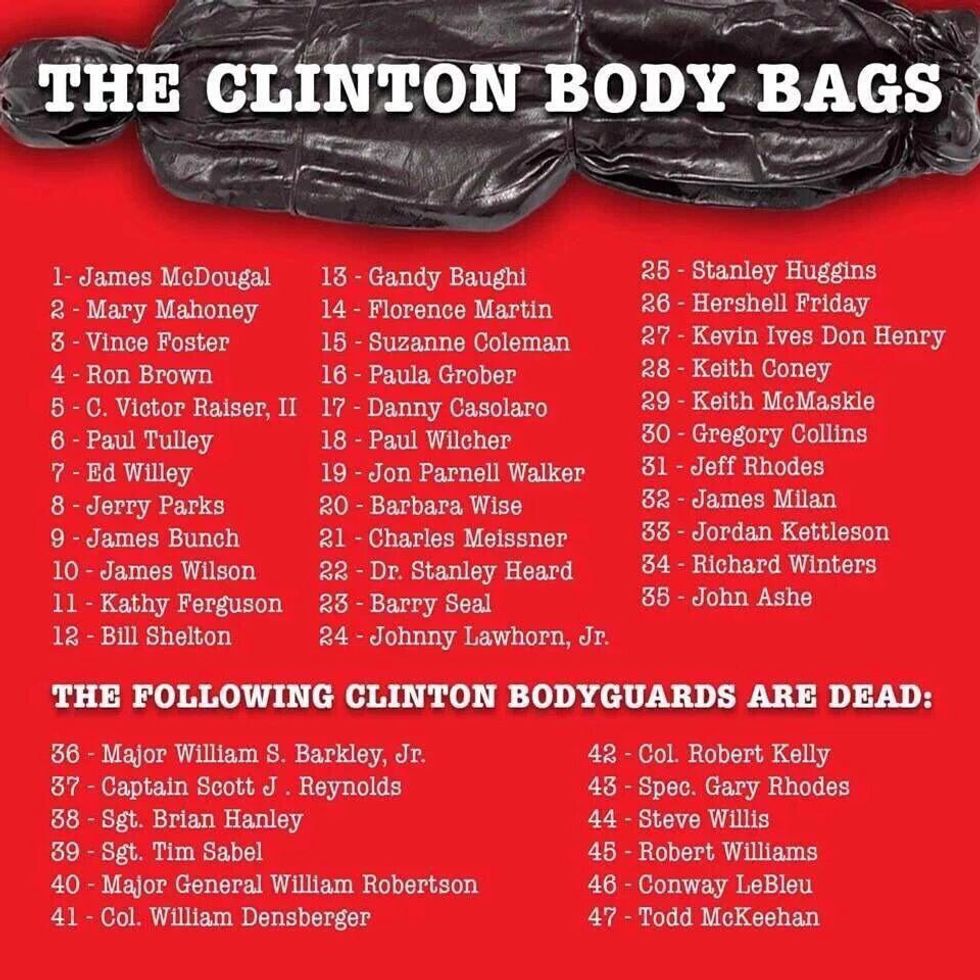Suddenly, "fake news" is being talked about by everyone. Even President Obama weighed in on the issue: “Because in an age where there’s so much active misinformation and its packaged very well and it looks the same when you see it on a Facebook page or you turn on your television,” Mr. Obama said. “If everything seems to be the same and no distinctions are made, then we won’t know what to protect.”
This is indeed a problem, but it's a problem that has been around for years and years. Why is this just now being talked about so widely? Well... it seems that many are saying that "fake news" helped Donald Trump win the presidential election, against all mainstream media predictions. Because of this, it is now a problem to have beliefs based on false information. Better late than never? It goes like this: our beliefs are shaped by the data we gather, and our data gathering often relies on the media that we take in, and increasingly, the data that we take in often comes from social media as shown in this recent Pew poll.
Facebook is outlining steps to push back against "fake news" in light of a report that it often performed better than "real news" on Facebook:
"In the final three months of the US presidential campaign, the top-performing fake election news stories on Facebook generated more engagement than the top stories from major news outlets such as the New York Times, Washington Post, Huffington Post, NBC News, and others, a BuzzFeed News analysis has found.
During these critical months of the campaign, 20 top-performing false election stories from hoax sites and hyperpartisan blogs generated 8,711,000 shares, reactions, and comments on Facebook."
This report ironically comes from hyper-partisan pseudo-news organization "Buzzfeed," which Pew has shown is less trusted overall than Breitbart. Breitbart is a conservative news website which is often described as a haven for the alt-right, which many people claim has ties to white nationalism.
Twitter also has begun banning prominent alt-right users in light of Donald Trump's winning presidential campaign, and in response, many on the alt-right have begun hitting back by confusing their system. Indeed, there are often many activists on the left that also engage in divisive identity politics and racist language that would appear to violate the same rules that Twitter says it is upholding against the alt-right. Who is speaking the truth, and who is spreading hateful messages? Which is spreading "fake news," and which is sharing legitimate information? When someone decides to silence certain media, they are participating in censorship. These are the philosophical and practical considerations one must consider when combating "fake news" spreading on social media.
The more I research this issue, the more it seems apparent that there seems to be a bias against what type of "fake news" needs to be fought against. Clearly, this backlash seems to currently only target conservative "fake news", and I say this as a lifelong Democrat. The label of "fake news" also seems to be sidestepping what this issue is really about—the successful spread of propaganda. Let's be clear about this, though—conservatives do indeed engage in conspiratorial thinking and the spreading of propaganda. For example:
Conservative propaganda and "fake news" sites are prolific, no doubt, but also tend to be very poorly designed and often laughable with their claims. Some, like Infowars, is well designed and mixes truth with untruth. Make no mistake though, the left engages in the creation and spreading of "fake news" just as much... and perhaps in a more damaging manner. I will make my case for this from here on out.
The left, while proclaiming to be pro-science, has anti-vaxxers, flat-earthers, and the anti-gmo movement constantly spreading "fake news". However, I won't address this type of "fake news", although anti-vaccine ideas are potentially very harmful. I am more concerned with widely accepted narratives. The biggest problem with left wing media stems from approaching a story or person with an assumption of ill will, and the logical fallacy of guilt by association. These are two huge common problems that must be addressed going forward in our media and social discourse.
I will explore some of the important stories of our recent presidential election such as the narrative that Trump mocked a disabled reporter's disability and the narrative that Trump's comments in the uncovered Access Hollywood tape constituted sexual assault. For many, these events were unforgivable offenses and caused immense damage to his campaign, and these narratives created by the media were widely accepted as truth.
However, upon further scrutiny, the specific narratives of "sexual assault" and "mocking the disability" seem to lack evidence. It appears that Trump was indeed mocking the reporter, but not because he was disabled, which is a very important distinction. Here's videos of him before this incident mocking people who are not disabled in the same fashion, and video of the reporter that he's mocking, who does not move in the manner he's portraying:
This, at the very least, throws a good bit of doubt on the popular narrative that Trump was mocking this reporter's disability. As for the sexual assault narrative, Trump was indeed talking about groping women in the Access Hollywood tape, but not against their will. In the tape, he clearly says "...and when you're a star they let you do it.", which implies consent. This is a very important distinction because consent means it's not sexual assault. Regardless of this, the narrative that Trump actually committed sexual assault was repeated as unmitigated truth widely in the media, and even in a presidential debate by Anderson Cooper without question. Even Dave Chappelle called out the media for twisting the story and never being questioned for doing so.
The fact that these stories did so much damage to Trump's campaign matters, because based on the evidence I have collected, the narratives that came out of these stories are just as "fake" as many of the stories on Infowars. This appears to be, at best, biased reporting and at worst, straight up propaganda. The intent of these false narratives was to unfairly damage Trump's campaign, in either case. Furthermore, I think this type of "fake news" is far more harmful and dangerous than some fringe conspiracy theory website because these narratives and stories are coming out of widely trusted news organizations.
Indeed, it has long been time for all of us to fight against "fake news," and to better scrutinize our media for falsehoods that attempt to create a false narrative as opposed to sharing the facts in a balanced manner with a reasonable assumption of goodwill and context. With just 69 percent of Americans saying they don’t trust the media at all or very much, it's clear that I am not alone in my sentiments. If we are pursuing social justice, we must make sure that our information is correct, or we risk becoming unjust in our actions.
























